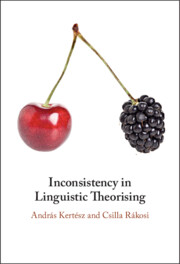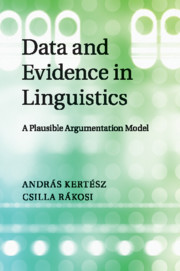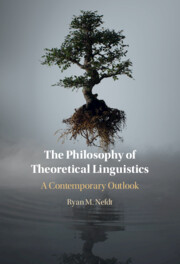Inconsistency in Linguistic Theorising
It is widely believed that inconsistency is one of the greatest sins a scholar can commit. This issue is especially relevant in linguistics due to the rich diversity of data types, exceptions to the rules, counterexamples to the hypotheses, and background assumptions which constantly come into conflict with methodological principles. Bringing together ideas from linguistics and philosophy of science, this groundbreaking book seeks to answer the following questions: which kinds of inconsistency arise in linguistic theorising? Under which conditions can inconsistencies be tolerated? And how can inconsistencies be resolved? It is the first study to develop a novel metatheoretical framework that accounts for the emergence and the resolution of inconsistency in linguistic theorising, and to reveal the strategies of inconsistency resolution in theoretical linguistics. Supported by detailed case studies, the findings of this metatheoretical analysis can be applied to improve the effectiveness of the working linguist's problem-solving activity.
- Reveals the relationship between the nature of linguistic data and different kinds of inconsistency in linguistic theorizing
- Elaborates a novel metatheoretical model of theory formation in linguistics
- Improves the effectiveness of linguistic problem solving
Reviews & endorsements
'The authors provide a systematic treatment of the role of inconsistency in linguistic usage. Their discussion is thoroughly grounded in the literature of inconsistency in contemporary linguistics, semantics, logic, rhetoric, and philosophy. Their innovative perspectives and proposed solutions to problems will interest everyone who works in this challenging area.' Nicholas Rescher, Distinguished University Professor of Philosophy, University of Pittsburgh
'While inconsistencies have traditionally been regarded as fatal glitches that needed to be eliminated from theories and descriptions, Kertész and Rákosi demonstrate that although consistency remains a fundamental desideratum, there are inconsistencies that are tolerable and that the emergence and resolution of inconsistencies are a natural part of linguistic argumentation. The authors' model throws new light on the nature of linguistic theorizing by offering a unified framework that integrates inconsistencies whether arising between data of a particular kind, or between different kinds of data, or different theories, or different descriptions.' Edith A. Moravcsik, Emeritus Professor of Linguistics, University of Wisconsin-Milwaukee
Product details
July 2022Hardback
9781009100335
290 pages
235 × 158 × 24 mm
0.63kg
Available
Table of Contents
- 1. Introduction: the Main Problem (P)
- Part I. The State of the Art:
- 2. Approaches to inconsistency in the philosophy of science
- 3. Approaches to inconsistency in linguistic theorising
- Part II. Paraconsistency:
- 4. The paraconsistent treatment of inconsistency
- 5. Prospects and limits of the paraconsistent treatment of inconsistency
- Part III. Plausible Argumentation:
- 6. From paraconsistency to plausible argumentation
- 7. Inconsistency and theory change
- 8. The treatment of inconsistency in Optimality Theory
- 9. The heuristics of inconsistency resolution
- Part IV. Summary:
- 10. The methodological background
- 11. Conclusions.





